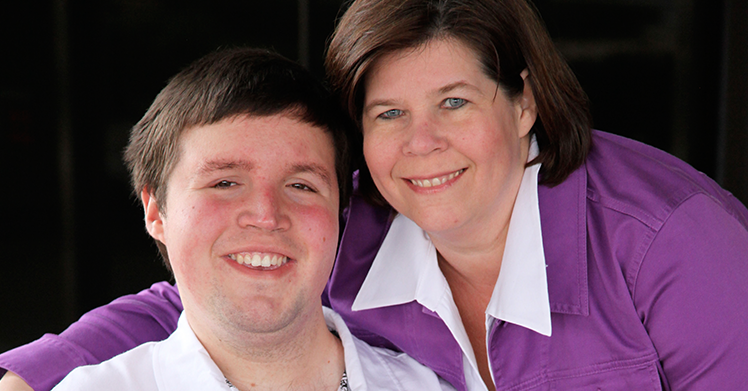
Throughout the years, I have learned a great deal from working with boys and young men with Duchenne and Becker. I have also come to know their families well and a common concern for families of boys with Duchenne and Becker is the carrier status of female members of the family including their mothers and sisters.
For females living with dystrophinopathy, often referred to as carriers or those who have one copy of the DMD gene with a variant, the disorder has not been historically characterized effectively. To address this need, PPMD initiated a first-of-its-kind carrier study to investigate these issues in a cohort of more than 100 females over a period of three years. While this was a great first step in understanding more about carriers, with publications on both cardiac implications for women with dystrophinopathy and mental health for caregivers of those with Duchenne/Becker, there are gaps in care that need to be addressed. This is an important focus area for me and one that I hope to delve into more deeply in my work with PPMD.
Cardiac symptoms are a common manifestation of dystrophinopathy in women, and although it is recommended that mothers, sisters, and other female family members, who are carriers of Duchenne or Becker, see a cardiologist, they may not have access to a specialist with this unique clinical experience. Additionally, as our female members of the community navigate the challenges of taking care of their families, including the needs of their child(ren) with Duchenne or Becker, they may not seek medical attention for their own health and well-being.
This is something we hope to change and improve upon, particularly as we learn more about the heart, muscles, psychosocial concerns, and other aspects of women’s health.
The carrier study at Nationwide Children’s Hospital, which PPMD was proud to fund, looked at women who were known to be carriers and found that approximately 50% had changes in the heart similar to their sons. This stresses the importance of seeing a cardiologist who is familiar with this information, and receiving early treatment. Moving forward, not only is it important that women have access to comprehensive, multidisciplinary care, but that we learn more about how being a female with dystrophinopathy impacts her overall health.
Including females with dystrophinopathy in clinical trials and studies such as the Imaging DMD natural history study and gathering data in registries and electronic health records will be even more important as new treatments become available. To help facilitate the critical collection of that natural history data, PPMD is proud to share that they are awarding $17,000 to Dr. Alison Barnard to cover travel costs for individuals participating in her pilot study of carriers of DMD. Dr. Barnard, who is involved in the ImagingDMD study at the University of Florida, will study a small cohort of pediatric and adult symptomatic carriers (specifically those experiencing skeletal and muscle weakness) utilizing MRI to generate data that can be leveraged into a larger natural history study to build the requisite contemporary natural history data for companies to investigate therapies for this underserved population.
Understanding more about women with dystrophinopathy is particularly pertinent as recent recommendations for more extensive genetic testing before and during pregnancy, lead to more women identified as carriers requiring guidance and treatment. Being a carrier of Duchenne can affect so many aspects of a woman’s life. As part of our efforts to better understand and support carrier issues, PPMD recently created “Duchenne Muscular Dystrophy Carriers: Your Questions Answered”, a new resource for women who are carriers. The brochure is a comprehensive guide to the questions most often asked by carriers and is available in both English and Spanish. It was developed in collaboration with carriers and with expert providers from neurology, genetics, cardiology, and psychology.
PPMD’s Duchenne Registry has been collecting data on Duchenne and Becker individuals and carrier females since 2007. If you are a carrier, we encourage you to join today at DuchenneRegistry.org. The more data we collect and can learn from, the more support we can provide to females in our community both now and in the future.



 by: Parent Project Muscular Dystrophy
by: Parent Project Muscular Dystrophy

